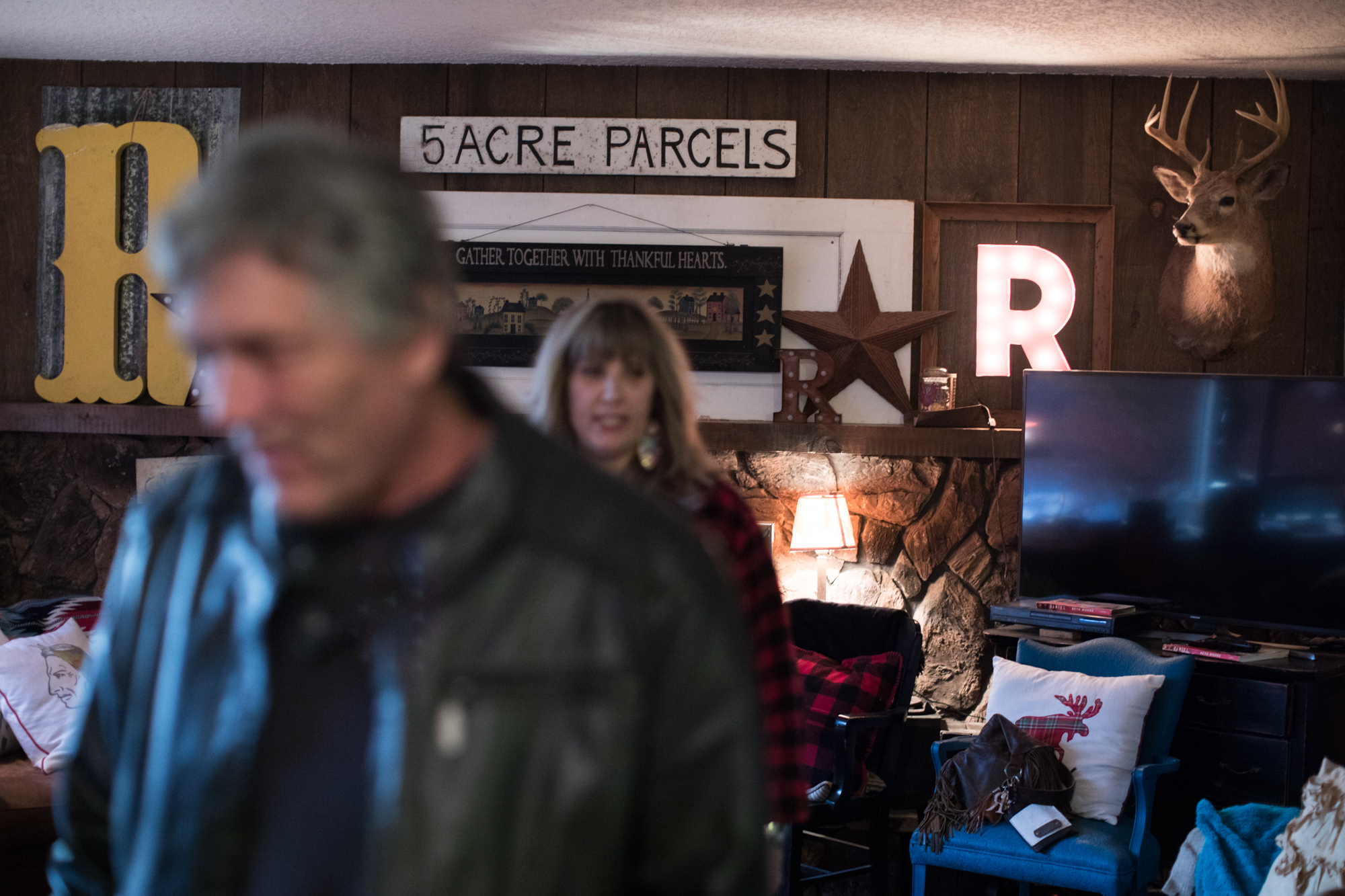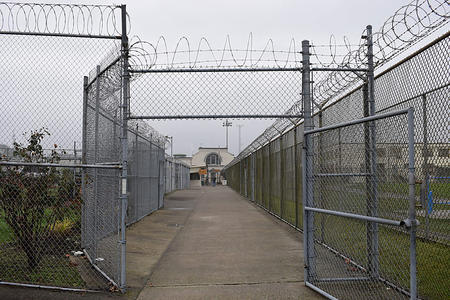State government records obtained by InvestigateWest under the Washington Public Records Act reveal that the sentiment is widespread enough among foster parents that state child-welfare officials acknowledged it internally years ago. In one April 2017 email, a regional social-services administrator wrote that foster parents complaining about caseworkers retaliating against them “is a common theme across the state.”
And though officials held two unprecedented public meetings, in May 2017 and September 2017, to air issues around “retaliation,” internal emails examined by InvestigateWest indicate that there was little direct official follow-up in staff emails in 2017 or early 2018.
Under orders from the Legislature, the Department of Children, Youth & Families produced a report in December 2018 reviewing procedures for handling foster parents complaints and concerns. In the 11-page report, the department said it held a meeting with a group of about 60 foster parents in September 2018 and in the same month held a webinar for foster parents that was attended by fewer than 60 foster parents.
Because several avenues are available to handle foster parents’ complaints, “… the Department is not recommending additional processes be put in place at this time,” the report said. Instead, it promised “enhanced systemic monitoring of foster parent supports” that would lead to improvements.
Interviews with more than a dozen current foster parents, former foster parents, state officials and others show that caseworkers’ perceived threats are creating a culture of fear among foster parents, who live under strict regulations in order to maintain their foster licenses.
Punitive treatment by state caseworkers “is the biggest fear foster parents have," said Mike Canfield, executive director of the Foster Parents Association of Washington State.
"It's the fear that all kinds of things could happen if you [the foster parent] take a stand," said Canfield, a foster dad to more than 200 children across more than 30 years.
This isn't just a matter of damaged foster parent egos. It hinders a state effort to care for a caseload of abused and neglected kids that has exploded in the wake of the opioid and methamphetamine addiction crisis, among other factors. The result: Some foster kids even have to stay overnight in motels or, in rare instances, in state offices.
“Now you have multiple kids who have had to sleep in hotel rooms when they would have been safe in our home,” said former foster mother Amanda Matronic of Skagit County, who dropped out of the foster care system in disgust after run-ins with caseworkers.
Though the number of foster homes in Washington has ticked up in the past few years, to about 5,100, that figure isn't enough to handle the approximately 9,100 young people in the foster care system. In fact, if notoriously overworked state caseworkers are unfairly sanctioning foster parents and causing them to drop out of the system, they are exacerbating a crisis of historic proportions in Washington’s child-welfare system. That crisis already has resulted in hundreds of foster children being housed in motels or even occasionally at state offices. State officials have been so desperate to house foster youth that they have resorted to paying some foster parents up to $600 per night to take in a single foster kid.

'Asked this question a lot'
"Retaliation” is a catchall phrase in Washington foster parent circles, and it is used to cover a variety of complaints. When they use the term, current and former foster parents are referring to what they view as vindictive actions by state caseworkers and supervisors. Those are actions carried out not in response to foster parents violating the terms of their state license, but rather as punishment for disagreeing with caseworkers or reporting caseworker misconduct.
Many of the foster parents contacted by InvestigateWest to follow up on their retaliation stories ultimately refused to be interviewed, even with the promise of anonymity in this article.
Despite that hesitance, InvestigateWest was able to document a handful of credible accounts of what appear to be retaliation by state workers.
State officials have known about this problem for years. The state Office of the Family and Children’s Ombuds in 2015, 2016 and 2017 reported on foster parents’ complaints, echoing what InvestigateWest has long heard from foster parents, including:
- “A foster parent disagreed with a plan to transition a child to the parent’s care. The caseworker responded, ‘If you keep this up, we may have to consider a different foster placement.’”
- “A foster parent disagreed with the caseworker over the selection of a counselor to work with a child.… The case worker still scheduled the child’s therapy with this counselor and, when the foster parent objected, the caseworker threatened to remove the child.”
- “A foster parent had been caring for a child since birth. The court order increased parent-child visits, adding a visit each week. The foster parent was happy to accommodate an additional weekly visit, but for family and religious reasons did not want to schedule visits on a Saturday or Sunday. The Department threatened to remove the child if they did not agree to a weekend visit.”
The ombuds office started tracking “foster parent retaliation” in annual reports back in 2006, according to Ombuds Director Patrick Dowd.
Retaliation "is probably the biggest concern of foster parents in Washington state," Andrew Schneidler, an adoption attorney, told InvestigateWest. Schneidler is a former foster parent, an adoptive parent and the founder of the Children's Law Center of Washington.
He said the problem of unprofessional caseworker behavior goes beyond actual vindictive actions. The heart of the problem, he said, "is fear of retaliation and threatened retaliation."
"The way [caseworkers] control foster parents is through fear and money," Schneidler said, referring to the monthly stipend that foster parents receive. (The monthly stipend in cases involving children without any special needs ranges from $562 to $703, increasing with the child's age.)
The state Department of Children, Youth & Families has "a culture problem," Schneidler said. "Everybody's afraid."
When asked how foster parents' fear of caseworkers can be eradicated, the head of the department, Ross Hunter, said, "I get asked this question a lot."
While saying "some of this [issue] is perception" among foster parents, he also said, "there's probably some reality."
Hunter, a former state legislator and Microsoft executive who has headed Children Youth & Families since the department launched in July 2018 as part of a sweeping child-welfare reform effort, emphasized that he is trying to build a welcoming atmosphere for caseworkers, rejecting a past culture he said was too punitive.
That culture was driven in part by hundreds of millions of dollars in court verdicts against Hunter’s department’s predecessor by foster youth who were abused while in the state’s care or because of alleged negligence by the state. Changing the punitive dynamic in the new department is necessary to reduce the dropout rate of frontline social workers, he said.
"I'm interested in creating an environment where my workers do their work, are honest about it, where we have thoughtful relationships with foster parents," Hunter said.
"I'm also interested in having an environment where I didn't have 40% of my caseworkers leave in their first year," he added in what agency spokeswoman Debra Johnson said was an apparent reference to the turnover rate under the department's predecessor agency, the Department of Social and Health Services.
"If I come in, and I'm a guy who's all about discipline for caseworkers, my guess is it's not going to create a warm and welcoming environment," Hunter said.
First-year turnover of caseworkers was 12% between July 2018 and June 2019, Johnson said.
Most of the roughly 600 state foster care caseworkers appear to act according to the law and to regulation, persevering in spite of what some describe as emotionally draining jobs and heavy caseloads. The taxing work can result in a young and inexperienced workforce with high turnover, national studies show.
The average caseload for these workers, who find foster homes for children removed from their caregivers and then monitor their health and safety, is 18.9 cases, according to state officials. However, one department employee, who spoke with InvestigateWest on condition of anonymity because the department hadn't authorized the person to speak publicly, said it isn't unusual for caseworkers in some offices to have 30 to 40 cases.
When asked if caseloads of 30 to 40 caseloads exist, department spokeswoman Debra Johnson replied in an email, "Caseworkers may have a caseload of 18 cases."
That was the limit set by a 2004 court settlement that expired at the end of 2014. Since then, caseworkers have repeatedly told InvestigateWest that the old case limits are being exceeded.
Later, in an interview, Johnson said she had been in a meeting where the caseload numbers were discussed and the highest she saw was 19.
“I know those numbers are not up to 30 or 40 cases,” Johnson said.
Several foster families who say they were driven out of the state system by state workers agreed to share their stories with InvestigateWest. The Department of Children, Youth & Families declined through spokeswoman Johnson and through department head Hunter to respond to questions about the department’s conduct. Rather, they told InvestigateWest to submit questions about the families and their foster-child cases to the department's public disclosure unit, which in turn would decide what information, if any, to release. That process can take months. Hunter said privacy regulations prevent him from commenting on individual cases.
Here are two families’ accounts of how they were treated by caseworkers:
3 dogs and a cat
When a state social service worker cited Amanda and John Matronic for having three dogs, a cat and stains from both children and animals on their sofas, the family still stuck by the agency. It was only when the agency stopped placing foster children with them that, after almost five years of on-and-off conflict, the couple closed out their foster-parent license in disgust.
Starting in early 2013, the Skagit County couple fostered more than 50 children by fall 2018. Now the parents of five adopted children and two biological children, the couple had no kids of their own when they became foster parents.
The Matronics’ first run-in with a caseworker happened with their third foster child, around mid-2013. Amanda Matronic initiated an investigation on her own after she found the girl sexually “humping” her baby doll and, concerned about what it meant in a 3-year-old, reported the incident to the Department of Social and Health Services. That, in turn, led to state workers examining the lives of the Matronics.
The state determined that the Matronics hadn't committed any sexual abuse of the girl. But the department did find the family had not sufficiently supported the girl's Native American cultural heritage. Though the family used books and dolls to teach their foster daughter about her heritage, the state questioned whether the family was taking her to see her tribe — which her biological parents did with her during visits — and whether the Matronics were serving her Native American foods.
Even though state investigators deemed the sexual abuse allegation "unfounded," the Matronics became fearful of leaving their foster daughter alone with John Matronic, the husband, because of the possibility that he could be accused of abuse. The department left the girl in their home following the investigations, but it ultimately took her out that September and moved her into a family connected to her biological father. The Matronics supported the move: "We kept pushing for finding her a new home," Amanda Matronic said in an interview.
After tussling with the state over placement of an infant, which the department denied because of what it called a stressful environment in the Matronics' home full of children, the final blow to their confidence in the department came after their then-13-year-old adopted daughter admitted that she was suicidal. Amanda Matronic, who found her daughter, “Jill,” tying a bandana around her neck, went with her and John to the hospital that day in June 2018.
Because the Matronics were scheduled to take in a foster child that very day, she told a state caseworker and child-placement team about the attempted suicide. However, Matronic didn't report the incident to the intake center of Child Protective Services, which foster-license regulations required her to do. She said she didn't know to do that for her own, adopted daughter.
Then came a state investigation of the family, with the department arguing that the Matronics didn’t properly maintain their home. The evidence: stains on their couches and an abundance of pets. It was during this investigation into the condition of the Matronic house that the family learned that they were required to report the suicide attempt to Child Protective Services’ official intake telephone number, getting in trouble with the department for not doing so.
Until then, "not a single person" had told the Matronics that they needed to make that phone call, Amanda Matronic said.
The department decided to stop placing foster kids with the Matronics, deeply offending them.
They closed their foster parent license on Sept. 1, 2018.

The cupcake incident
In North Bonneville, Robbie Banks-Onthank and her husband, Bill Onthank, have finished raising their biological children: Robbie has four children, all over the age of 18, and Bill has two grown sons. Married in 2012, they decided to pursue foster parenting together.
They got their foster-care license about three years ago, and, in the space of a year, took in 25 children. The shortest placement was an overnight stay of a preschool-age boy. The longest stay belonged to "Miles," a 5-year-old who lived with the Onthanks for most of a year.
The state ended Miles' placement with the Onthanks suddenly. It happened without first holding a special meeting, called a Family Team Decision Making meeting, with the couple and Miles' caseworker — a child-welfare planning session that typically occurs before the department removes a foster child from a foster home. Banks-Onthank had told Miles that day in spring 2017 that a caseworker would be picking him up from school and bringing him back home, to the Onthanks' house.
"But she didn't," Banks-Onthank said in an interview. "She never brought him back, ever."
The department, then part of the Department of Social and Health Services, said the couple had been withholding food from Miles as a form of punishment. Banks-Onthank said that when she later received and read through her DSHS file, which she was entitled to get after the closure of her license, she found that a person she knows had told the department about the boy's chocolate cupcake incident.
After a regularly scheduled psychologist visit for Miles, who had emotional delays, Banks-Onthank had taken him to a coffee shop for a hot chocolate and a chocolate cupcake. She told him she would have a piece of his cupcake.
When she took a chunk of his dessert, "he had a grand mal temper tantrum meltdown, scream, kick," she said. In response she told him, "I'm sorry, [Miles], you don't get to finish the cupcake."
Although she cannot be sure, Banks-Onthank is convinced that the department used that incident as the basis for its allegation that she and her husband refused food to Miles as punishment. Though she and her husband upheld strict table manners at their house, so that children who refused to eat or threw food lost their chance to finish dinner, the department didn't have a way of knowing that, she said.
Miles's removal from the Onthanks came after the stay of "Rita." Rita was about 14 years old when the department put her with the Onthank family. Her caseworker decided to take her away after just six weeks with the Onthanks, but, they said in an interview, Rita didn't want to go. Banks-Onthank instructed the girl to call her caseworker and tell her so.
"The phone rang right after that, with her social worker chewing me out," Banks-Onthank said.
She said that, as later happened with Miles, a caseworker with the department took Rita out of school without first holding a Family Team Decision Making meeting. The department also opened what was to become the first of multiple investigations into the Onthanks.
Allegations by the state included not getting Rita needed support services for her intellectual disability, giving her an OK to pierce her nose and allowing her to spend hours on social media, alone, without supervision. In an interview, Banks-Onthank called those allegations "a bunch of crap."
"All those things were completely unfounded, were proven unfounded by the department," she said.

She said she phoned in a request for Rita to receive support services, gave her the OK to wear a clip-on nose ring and allowed her to use social media on Banks-Onthanks' cellphone and to do so when she and Rita spent time together, such as when she was making dinner and Rita was sitting in the kitchen with her.
Banks-Onthank attributes the perceived retaliation to the fact that she lodged grievances with the department. She said she passed on a complaint about another foster parent and a caseworker to Joel Odimba, the top administrator for the Region 5 area of Washington, which serves Pierce and Kitsap counties, and to Debbie Lynn, a deputy regional administrator for Region 6, which serves the westernmost slice of the state. (She also spoke with Odimba in person at a foster-parent appreciation dinner in May 2017, according to Odimba's department emails, which InvestigateWest obtained through the Public Records Act.)
In addition, Banks-Onthank said she complained to Lynn about what she called false information that department workers presented at a court hearing for Rita.
Johnson said InvestigateWest would need to file a public disclosure request in order to learn about communications between Banks-Onthank and agency staffers Lynn and Odimba.
In emails that InvestigateWest received through a public records request and from Banks-Onthank, she reached out to officials at the department. In internal emails, department officials discussed her complaints, with one staffer writing that she had reviewed Banks-Onthank's case file and found the allegations about her to be worrisome.
"After reviewing both the provider file and case files in FamLink [the department's internal computer system] it seems there are some significant concerns about this foster parent," Rebecca Taylor, then a Constituent Relations program manager, wrote in a May 2017 email.
In releasing the records to InvestigateWest, the agency blacked out some lines of her email, citing exemptions to the Public Records Act. The email continued, "Also, concerns seem to be coming from many individuals, not just Department employees, so I think it is unlikely that this is an issue of retaliation."
"Since [name blacked out] has already been in contact with you about this, I will be closing the Constituent Relations complaint out," Taylor said at the bottom of her email.
"Thank you, Rebecca," Odimba emailed in reply.
Like a handful of other current and former top department officials, Odimba was accustomed to foster parents complaining about retaliatory actions and words by Children, Youth & Family staffers, public records showed. In an April 2017 email, he had written another staffer that retaliation "is a common theme across the state."
In the end, the department revoked the Onthanks' foster-care license, and the Onthanks hired an Olympia-based lawyer, Gary Preble, to represent them and help them get their license back. In spring 2018, after nearly a year of fighting the department, they gave up.
"We didn't have any more money," said Banks-Onthank. The couple raised $3,000 from a GoFundMe online campaign to fight the department and spent hundreds of dollars on lawyer bills from Preble.
She and her husband have mixed feelings about fighting the department so fiercely.
"What they're doing is wrong, and they're going to continue to mow over people because they can," she said. "It's going to take someone who's obnoxious enough to stand up to them," she added, but that approach "didn't turn out so good" for her and her husband.
Banks-Onthank said the couple fought the license revocation because it was a matter of principle and public accountability. "If there's no repercussion from bad behavior, then [department staffers] just keep making bad choices, right?" she said.
She had been enthusiastic about taking up the foster-parent mantle. "I'm like, 'This is wrong, and I'm going to fight them!' " she recounted. "Little did I know it was a lost cause."

Going up the chain of command
Officially, recourse is available to foster parents who face retaliation. Within Children, Youth & Families, there is Constituent Relations and, independent of the department, there is the Office of the Family and Children's Ombuds, which reports to Gov. Jay Inslee’s office.
Constituent Relations instructs would-be complainants to speak with their state caseworker or licensor as a first step. If that fails, foster parents next are supposed to reach out to the caseworker’s supervisor. Should that also fail, then foster parents are supposed to contact the supervisor's manager, called an area administrator. Only at that point should the foster parent contact Constituent Relations, according to the office's webpage. They can do so by email, phone or mail.
However, when Constituent Relations reviews a complaint or the Ombuds Office conducts an investigation, the manager of that caseworker might be notified that foster parents are complaining. In short, the worker stands to lose face or even be reprimanded by his or her manager. For example, Constituent Relations forwards all complaints of "unprofessional conduct of an employee" to that employee's "appointing authority," according to Johnson, the department spokeswoman. Further, when a complaint comes in to Constituent Relations from certain sources — the governor's office, legislators, the Children, Youth & Famlies secretary or "other executive management employees" — the office forwards the complaint to a supervisor and area administrator on the same day the complaint is received.
Johnson declined to make the head of Constituent Relations, Edith Hitchings, available for an interview.
Located in Tukwila, not Olympia, Ombuds Director Dowd reports to Gov. Inslee, who appointed him to the job in 2015.
Children, Youth & Families workers who are carrying out punitive actions without cause have an even bigger motive to do so once a foster parent lands them in hot water.
Many foster parents fear that if they contact the Ombuds Office with complaints, department workers will remove their foster child.
In comments emailed to InvestigateWest, Dowd said that "it is troubling to hear foster parents state they did not report a problem to (Department) administrators or submit a complaint to (the Ombuds Office) because they fear retaliation."
The issue of foster parents’ fears of retaliation are not unknown to the Legislature. In fact, when lawmakers in 2017 passed a law carving out the child-welfare section of Children, Youth & Families from the Department of Social and Health Services, lawmakers specifically required a report on the problem to the Legislature by Nov. 1, 2018. The report was a month late.
State Sen. Steve O’Ban, a Republican from Pierce County who until recently also served on a board overseeing Children, Youth & Families, said he would be open to more action on the issue.
"If there is a real systemic problem, then we definitely need to address it," O'Ban said.
With reporting by Allegra Abramo and Robert McClure and records review by Dominic Campese and Edie Hilliard. This story was supported in part by a grant from the Fund for Investigative Journalism.
InvestigateWest is a Seattle-based nonprofit newsroom producing journalism for the common good. Learn more and sign up to receive alerts about future stories at http://www.invw.org/newsletters/.







